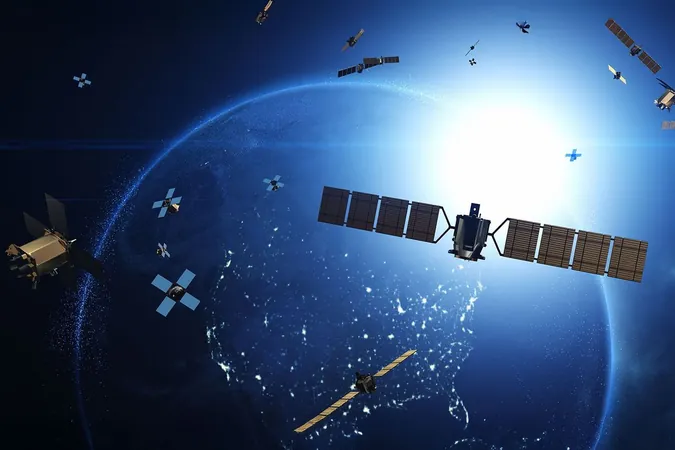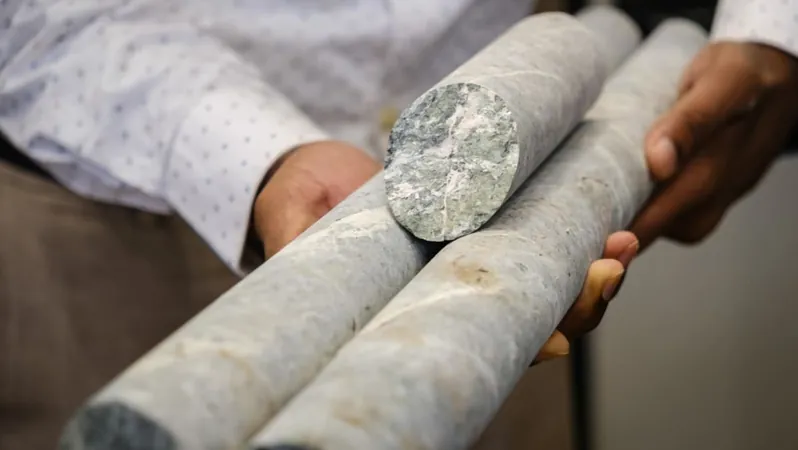
Should We Treat Space Junk Like Ocean Pollution? Experts Urge Action!
2025-01-11
Author: Daniel
Humans often dream of Earth as a stunning blue marble floating serenely in the vast emptiness of space, adorned by shimmering stars. However, the reality is starkly different. Our relentless pursuit of space exploration and industrial growth has led to a significant pollution problem in Earth's orbit, manifesting as space junk. This accumulation of debris poses a potential threat to future space travel and the integrity of satellite operations, and the situation is anticipated to worsen with the growing appetite for satellite technology as we delve deeper into our solar system.
A Call to Action from Experts
A coalition of international scientists from various disciplines—including satellite technology experts and ocean conservationists—has released a review in the journal One Earth, advocating for the application of ocean cleanup strategies to address the burgeoning space junk crisis. They stress that the implications of space debris are significant, endangering astronauts and compromising vital infrastructure, while also disrupting services on Earth like GPS, mobile communications, and meteorological data.
Proposed Measures to Tackle Space Junk
To tackle this pressing issue, the researchers propose several key measures:
1. Accountability for Debris Producers
Just as companies are held responsible for ocean pollution, space debris generators should face financial accountability for their waste.
2. International Legislation
The establishment of robust international laws to manage and mitigate space debris is essential for sustainable space operations.
3. Incentives for Minimizing Waste
Companies should be provided with incentives to design satellites and other space-faring technologies that generate less debris.
4. Global Scientific Collaboration
A cooperative effort among scientists worldwide can foster innovative solutions and technologies for minimizing the risks associated with space junk.
The Risks of the Current Situation
The scientists emphasize that the buildup of debris in crucial orbits increases the risks of collisions and jeopardizes the sustainability of these orbital zones. "The orbital environment must be regarded as a finite resource that necessitates protection and responsible management," they highlight.
A Unified Global Approach
Perhaps the most radical call to action is for the United Nations to step in, advocating for the introduction of a new sustainable development goal dedicated to space conservation. The UN has set 17 objectives aimed at fostering global cooperation on challenges like poverty and environmental sustainability. The researchers argue that an 18th goal focused on preserving our orbital environment is vital, especially to curb the proliferation of space junk.
Conclusion: Protecting Our Final Frontier
The authors contend that while there are fundamental differences between the marine and orbital environments—ranging from physical characteristics to chemical behaviors—the two share a critical challenge: both are increasingly littered with debris in essential shared spaces of our planet. As we continue to push the boundaries of space exploration, it’s crucial to adopt proactive strategies reminiscent of those employed in ocean conservation to ensure that we don’t lose one of Earth’s final frontiers to pollution. Will our leaders take action before it’s too late? Join the conversation and advocate for the future of our planet and beyond!


 Brasil (PT)
Brasil (PT)
 Canada (EN)
Canada (EN)
 Chile (ES)
Chile (ES)
 Česko (CS)
Česko (CS)
 대한민국 (KO)
대한민국 (KO)
 España (ES)
España (ES)
 France (FR)
France (FR)
 Hong Kong (EN)
Hong Kong (EN)
 Italia (IT)
Italia (IT)
 日本 (JA)
日本 (JA)
 Magyarország (HU)
Magyarország (HU)
 Norge (NO)
Norge (NO)
 Polska (PL)
Polska (PL)
 Schweiz (DE)
Schweiz (DE)
 Singapore (EN)
Singapore (EN)
 Sverige (SV)
Sverige (SV)
 Suomi (FI)
Suomi (FI)
 Türkiye (TR)
Türkiye (TR)
 الإمارات العربية المتحدة (AR)
الإمارات العربية المتحدة (AR)